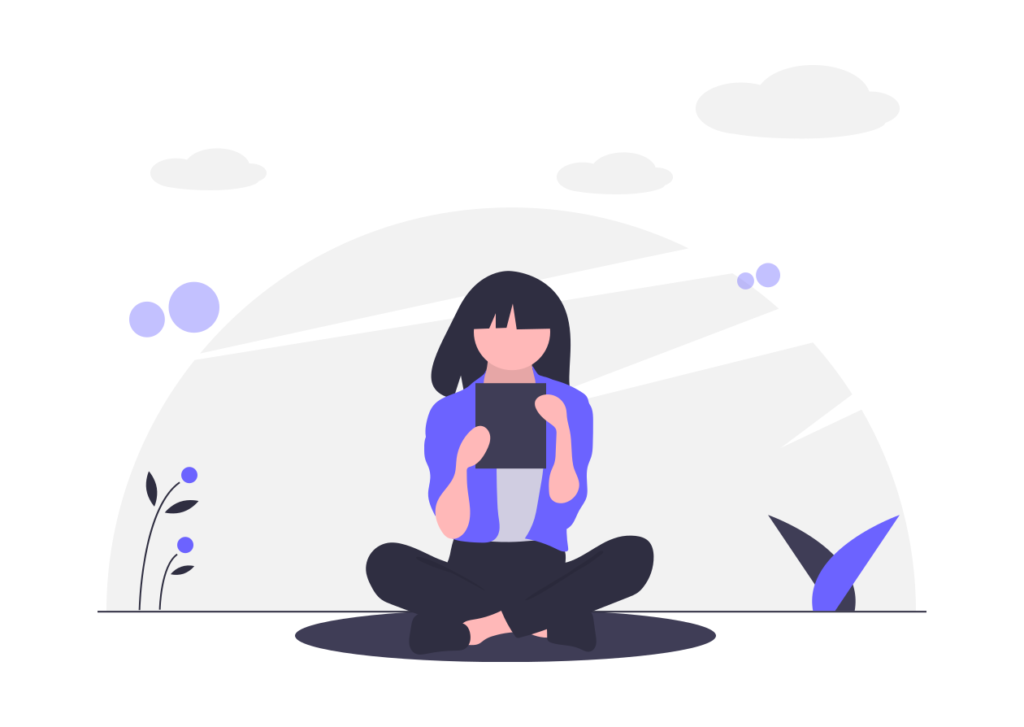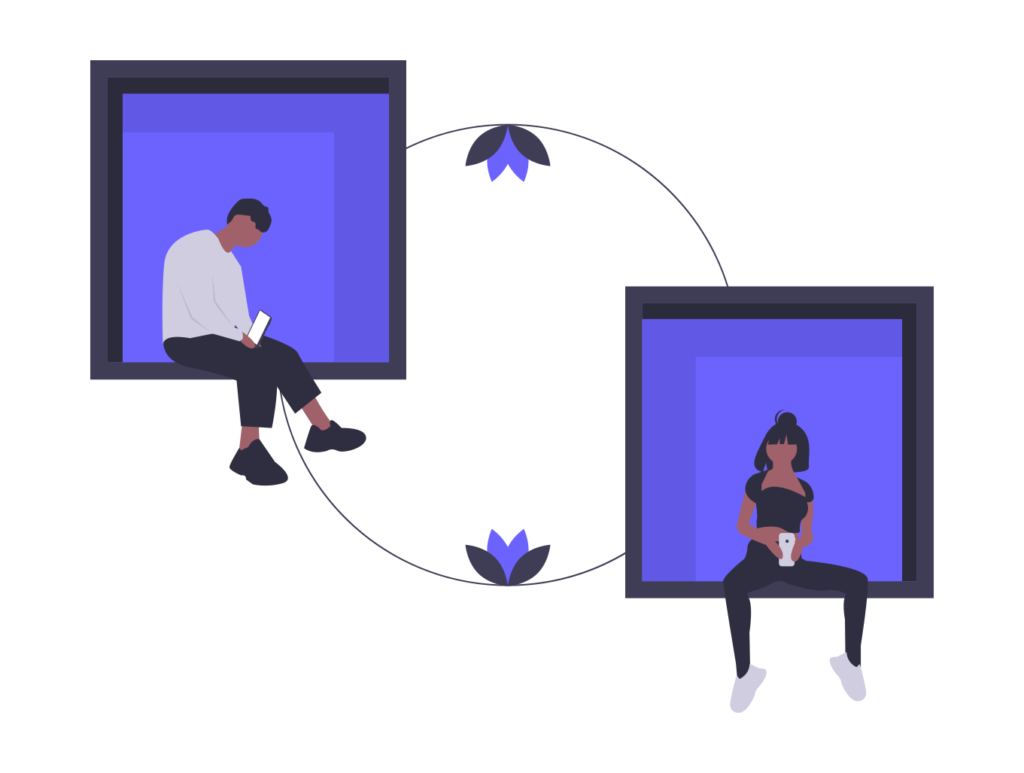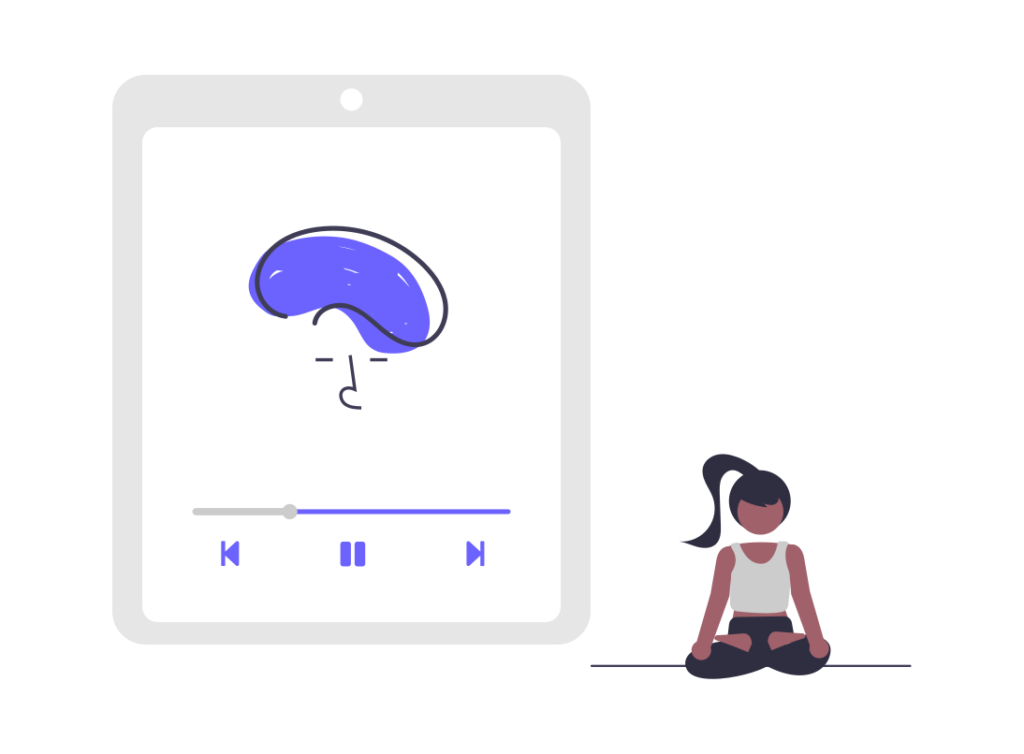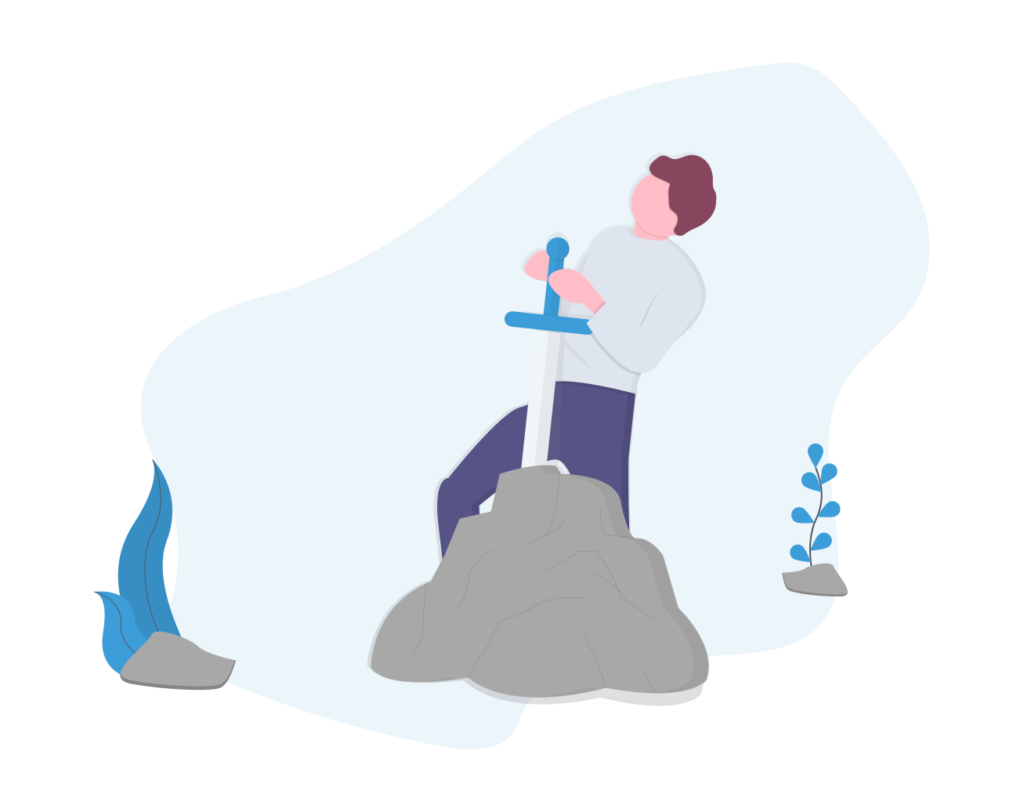So it’s happening again…. But this time we’re a little more prepared. In lockdown, our normal coping strategies aren’t available to us so this is the time to draw on our inner resources to cope the best we can.
But if there’s one thing the first lockdowns taught us, it’s that we were all impacted differently. With this in mind, we’ve created a comprehensive guide on how you can take care of yourself mentally and emotionally during our third lockdown…
Create a plan for your day
As human beings, we thrive off structure and routine. If we’re not careful, during lockdown, the blurred boundaries between work and home life can throw this all off balance. Whilst it might be tempting to lie in and stay in the same old pj’s, keep your normal daily routine in place as much as possible. Sticking to a routine not only makes us feel grounded and in control, but it’s also rewarding to know we’ve made the most out of our day.
Start each day with a 5 mins mindfulness meditation
Instead of stumbling out of bed a few minutes before work starts, why not try a short morning meditation? It will gently sweep away that groggy feeling, bring you a sense of peace and help you understand what kind of emotional state you’re in – something that’s especially important in lockdown.
Identify 5 things you’re grateful for everyday
Practise gratitude for the positive things in your life right now rather than focusing on the things you don’t have. By writing down what you’re grateful for (for example, your health, a cosy bed or close friends) you can train your mind to focus on the positives rather than the negatives.
Practice Radical Acceptance
In Dialectical behaviour therapy (DBT), we have a skill which we call Radical Acceptance. This is where we wholeheartedly accept the situation for what it is, even though we might not like it. Because rejecting reality isn’t going to make things better – it just prolongs our suffering.
Radical Acceptance doesn’t lessen the pain we feel or take away from the fact that we wish things were different. We’re simply recognising that we can’t change what has happened. A series of events led up to this point and, for the meantime, whether we like it or not, this is our reality. With practice, Radical Acceptance can help us find a sense of calm and inner freedom. It allows us to validate our emotions. And it helps us make peace with them, even if we wish things were different.
Practice self-compassion and validation as much as possible
It’s normal to be experiencing ups and downs at the moment. On down days, be extra gentle with yourself. Remind yourself of how far you’ve come, and take a moment to appreciate the positive things in your life right now. If that seems tricky, that’s okay too. Treat yourself like you would a close friend. Remind yourself that it’s okay to struggle.
Create your own self-soothing kit
When your heart starts racing and you feel overwhelmed, it can be difficult to think of practical ways to ground yourself and ease your anxiety. This is where a self-soothing kit can come into play. By filling a box with mindful items that comfort your senses (for example, a soothing herbal tea, a cosy blanket or nice candles) you can make yourself an at-home sanctuary where you can retreat to whenever you need to escape.
Balance activities that are necessary (i.e work) with ones that you do simply for pleasure (i.e. play)
During lockdown, you may have felt pressure to hustle harder than ever. And whilst it’s satisfying to tick items off your to-do list, there’s also merit in giving yourself a break and doing activities that are just for fun. What nourishes you or brings you a sense of joy? Maybe it’s an online yoga class or group meditation? Whatever you’re into, make sure you strike a balance between essential tasks and mindful activities that are just for you.
Practice being in the present moment
Most of us spend a lot of time dwelling on the past or the future. We think about what has happened or what could have been. And with the heightened stress of lockdown, it’s easy to catastrophize or imagine the worst-case scenario. But it’s important to remember, thoughts aren’t facts – and we fall into dangerous territory when we believe everything we think. Next time you find yourself catastrophizing, pause and think: what pleasure can you take from this moment right now?
It’s important to remember, thoughts aren’t facts.
Move your body
During lockdown, many of us turned to exercise to keep us going – and it’s easy to see why. When you exercise, your body releases feel-good hormones, endorphins and serotonin, which give you a natural energy boost and trigger positive feelings in the body. Plus, your body also becomes better at managing cortisol levels – the hormone that’s released in response to emotional or psychological stress.
But always listen to how you’re feeling….
Whilst regular exercise and nutritious meals are important for your physical and mental wellbeing, try not to be hard on yourself. These are extraordinary times. It’s okay if you haven’t fine-tuned the recipe for the ultimate banana bread or if you just fancy a day in your pj’s. Get plenty of rest and tune into how you’re feeling.
Life in lockdown: How to live alone but not be lonely

Whether you want to escape nightmare roommates or simply want a space to call your own, living alone can be incredibly liberating. But it can also be tough. Sometimes it can get lonely, there’s less opportunity for casual chit chat, and it’s always your turn to do the dishes. Then lockdown hit and brought its own unique set of challenges…
Just because you’re self-isolating doesn’t mean that you’re in this alone though. Here are just a few ways you can prepare yourself for lockdown and look after your mental health…
Stay connected
Without being able to pop by and visit loved ones in-person, it can be hard to stay connected. But with many of us feeling cut-off, it’s more important than ever to keep in touch with our friends or family, even if we can’t physically be with them. Schedule phone or video calls, or why not organise a weekly quiz?
If you’re finding it difficult to process your emotions, start writing in a journal
Anxiety, loneliness, stress… We all have lots of complicated emotions swirling around our brains at the moment. Journaling is a great way to make sense of our thoughts and to connect to what’s real. By writing it all down on paper, you don’t have to “carry” this emotional burden with you any more.
Follow accounts that make you feel good about yourself
Lockdown has left all of us feeling out-of-whack emotionally, and that’s only exacerbated by the digital minefield that is social media. Scrolling through your social media feeds, you might see photos of smitten couples cosying up in their matching tracksuits, ultra-healthy diet plans or flawless celebrities living their #bestlife. It’s easy to compare yourself and feel inadequate. But it’s important to remember that this isn’t necessarily “real life”. What we post on social media tends to be the best bits – filtered, edited and fine-tuned to perfection. Remind yourself that this isn’t necessarily what’s really going on behind closed doors. And take only follow accounts that make you feel positive.
What we post on social media tends to be the best bits – filtered, edited and fine-tuned to perfection.
Plan lots of activities to keep you busy at home
With lots of downtime on your hands you may find it rewarding to use this time productively. Why not learn a language, try a new musical instrument or take up a new hobby like knitting?
How to make relationships work in lockdown

Let’s face it: the first lockdown put every relationship to the test. Some couples were kept apart, others were forced together 24/7. You might have leapfrogged traditional relationship milestones, took the plunge and moved in together for quarantine. Or maybe you’re living and working with your other half. Whatever your circumstances, it’s only natural that spending every minute together will put strain on any relationship. With this in mind, we’ve compiled some tips on how you can keep the spark in your relationship, now that a third lockdown is underway…
Acknowledge that spending every waking hour together is likely to put pressure on any relationship
Bring any irritations out into the open air, instead of letting them build up and fester.
Schedule “me time”
No matter how much we love our significant other, being together 24/7 isn’t healthy. We all need personal space. Be sure to take the time to do things that are just for you. This can be as simple as creating a relaxing morning routine or having a long soak in a bubble bath.
Being together 24/7 isn’t healthy. We all need personal space.
Be as compassionate as possible
Let’s be real: lockdown is tough. And you might find that your other half is struggling a little more than you. Be mindful that there are likely to be a lot of vulnerable feelings around and try to be as sympathetic as possible.
Have an open conversation about boundaries
Just because you’re under the same roof doesn’t mean you have to spend every second together. Consider having an open conversation about how much time you should spend together and apart. Perhaps you work separately but then come together for lunch? It’s about being open, flexible and kind, and trying to make each other’s lives easier as you navigate this new terrain.
Create a positive working environment
For many of us, working from home means learning to work with a new office mate: our significant other. You might have to navigate noisy conference calls or questionable music playlists, so if you want to avoid passive aggressive post-it notes, it’s best you create structure and give each other space when needed. For instance, one person might want to work in the kitchen whilst the other works in the sitting room.
Validate your partner even if you have different opinions
Is your partner feeling more anxious about lockdown than you are? It’s important to be empathic and validate their feelings. Even though you may not agree with them, try to find some truth in their experience. Try to understand why they may be feeling this way.
Work as a team and suggest mindful activities you can do together
To say that this is a challenging time would be an understatement. But you’ve got someone in your corner. Look out for one another and try some mindful activities to keep you connected. For instance, why not start the day with a 10 minute mindfulness meditation?
In it together: How to share a home in lockdown

When you’re living with flatmates, personal space can be hard to come by at the best of times, let alone during a lockdown. You might have to work in cramped or loud conditions and it’s understandable that tensions may have become frayed. We’ve all learnt from our past experiences though. That’s why we’ve crafted these nifty tips to help ‘Generation Rent’ cope with lockdown.
Make personal space
It can sometimes feel near impossible to have your own space when you live in a houseshare. There’s always someone in the kitchen ready for a natter or maybe one of your flatmates always commandeers the telly. In lockdown, all the places you used to escape to are closed. But that doesn’t mean you can’t find time for yourself. It’s crucial that you save some ‘me’ time. Why not tidy your room and make it your own little sanctuary? Or you could catch-up on your favourite podcast or book?
Make physical space
The idea of escaping the office and hunkering down at home might sound idyllic, but it can quickly lose its shiny veneer when you live with others. From laptops set up at the kitchen table to towering piles of dishes, it’s important that you have an open conversation about your new (shared) working space. Have a frank conversation with your flatmates. Let them know where you plan to work and express your mutual needs in terms of keeping it clean and tidy.
Get on the same wavelength
With stricter measures in place, it’s important that you and your flatmates are on the same page. Maybe your partner wants to self-isolate with you in your shared flat? Or maybe one of your flatmates isn’t being as responsible or rule-abiding as you’d like? If you want to avoid flatmate drama, it’s all about creating an open channel of communication.
If you want to avoid flatmate drama, it’s all about creating an open channel of communication.
Navigating family life in lockdown

There’s no place like home. But, when we’re all living on top of each other and having to manage all sorts of new stresses, losses and uncertainty, it’s unsurprising that family life may have gotten trickier. Maybe you’re a 20-something-year-old who has decided to move back to your family home during quarantine? Or perhaps you’re caring for a elderly relative? Whatever your situation, it’s easy for conflicts to bubble to the surface. But don’t fret: there are plenty of coping mechanisms you can put in place to make lockdown that little bit easier…
Schedule “me time”
Our families are there for us through thick and thin. They’re the ones we trust, the ones we offload to and the ones we turn to at times of stress. However, it’s also vital that you make time for yourself, whether that means getting lost in your favourite page-turner or getting stuck into some gardening.
Carve out time for your partner
It’s easy to fret about the children, the bills and life’s daily stresses. But, for any couple, it’s important that you try and catch whatever moments you can together – moments that are just the two of you. If you’re really busy, it might be just before you both go to bed. But make those moments sacred, and steer clear of talking about the day’s irritations. Ask intentional questions that elicit a deeper connection between you both e.g. “When you think about the future, what do you imagine?”
Catch whatever moments you can together – moments that are just the two of you.
Plenty of hugs
If your kids are feeling anxious, a cuddle could be just what they need. It’s easy to underestimate the power of human touch. When we hug, we release oxytocin (otherwise known as the “cuddle hormone”). Oxytocin is the feel-good hormone which counteracts stress hormones like cortisol. Regular hugs and physical affection will help your child feel reassured, safe and secure.
Be sensitive to any anxieties
Lockdown has upended life as we know it. And understandably we’re all feeling a little out of sorts. Kids aren’t immune to this either. Maybe your child is worried, anxious or even a little scared? Take time to validate their fears. Let them know that everyone is struggling at the moment and that their worries are completely natural. Then, help them overcome them.
Write it down and tear it up
Are your little ones a bundle of nerves at the moment? Encourage them to write down what’s on their mind and then tear it up and throw it in the bin. This can help them symbolically throw away their worries, plus it shows them that they have control over how much attention and time they give their worries.
Start the day with 5 mins of mindfulness meditation
If you want to keep your kids calm and grounded, why not give meditation a go? Squeeze in 5 minutes of meditation together as a family and see if it helps. If you don’t know where to start, there are lots of great apps specifically designed to help children understand and practice mindfulness such as Headspace for Kids.
Keep everyone active
With schools and play parks closed, it can be difficult to keep your children moving – especially when there’s the temptation of TV and video games to contend with. Needless to say though, kids need exercise to be healthy and strong, regardless if they’re toddlers or teenagers. Plus, it’s also important for their mental health. Daily exercise can boost their happy hormones which will help them feel calmer and more relaxed.
Structure, structure, structure
We all benefit from a consistent routine, especially kids. Limits and boundaries provide children with a sense of safety and security so make sure you have set times for waking, bedtime, meals, bathing – and stick to them where you can.
Keep an “active” eye and check-in with your kids regularly
The world is a scary place right now and children often lack the words to express how they feel. This means it’s up to the adults to pinpoint when something is wrong. Just like adults, major upheavals – like those of the past few months – can trigger emotional difficulties for children. However, these should be temporary. Ask yourself, “does this feel out of character for my child?” If you suspect your child might be struggling with their mental health, it’s important to act on it.
Coping with anxiety

The previous two lockdowns were an emotional rollercoaster for everyone. It played havoc with our plans, our sleep and even our relationships. For those of us with anxiety, the prospect of another lockdown might be really frightening – and that’s completely understandable. It’s a scary, uneasy, and anxiety-inducing time. However, we’ve been through it once before and we can do it again. If you can feel you can feel anxiety starting to creep up, take a deep breath and try these tips to help you cope.
Breathing techniques
There’s one important grounding exercise that’s right under our noses – breathing. We breathe everyday without thinking about it. But by consciously breathing slowly and deeply we can give our parasympathetic nervous system a boost, which promotes a sense of calm. Simply breathe in for 4 secs, hold your breath for 7 secs, exhale for 8 secs (and repeat as needed).
We’ve been through it once before and we can do it again.
If you want to discover more therapy skills, why not try Self-Care? It has plenty of techniques from senior psychologists to help ground yourself and promote feelings of calm during lockdown.
Notice any catastrophic scenarios you might be creating in your mind
When you notice that you’re having a catastrophic thought, tell yourself it’s just that – a thought. Instead of trying to predict the future or imagining the worst-case scenario, focus on living each day moment-by-moment.
Try a grounding exercise
Whenever you’re feeling anxious, practice a quick grounding exercise called the “54321 Game”. Simply stop what you’re doing and name 5 things you can see in the room, 4 things you can feel (e.g. your feet on the carpet, the pen in your hand), 3 things you can hear, 2 things you can smell, and 1 thing good about yourself.
If you’re prone to anxiety, limit the time you spend on social media and the news
Both can amplify your stresses and worries, and it can be especially triggering if you’re someone who already struggles with anxiety day-to-day.
Think a certain app is causing you anxiety? Why not delete it, even if it’s just for a short time? A digital detox could be just the act of self-care you need – and you might even gain some ‘me’ time back too.
Times are tough. But we are tougher.

There’s no two-ways about it: the idea of another lockdown is rough. Really rough. But we also know what we’re in for this time.
We’ve done it before and we came out the other side. And if we plan ahead, we might even come out of it stronger than ever before.
We could really get to know ourselves. We could strengthen our relationships and friendships. And we could actually get to grips with the idea of ‘self-care’ and put it into practice. It may seem daunting, overwhelming and scary. But we will cope.
Lockdown has effectively pressed ‘pause’ on the chaotic buzz of our usual lives. We have more time than ever to take stock of our thoughts, our emotions and where we are in life. We might realise we want to change. And we just might just realise that we have the emotional and mental strength to do it.
